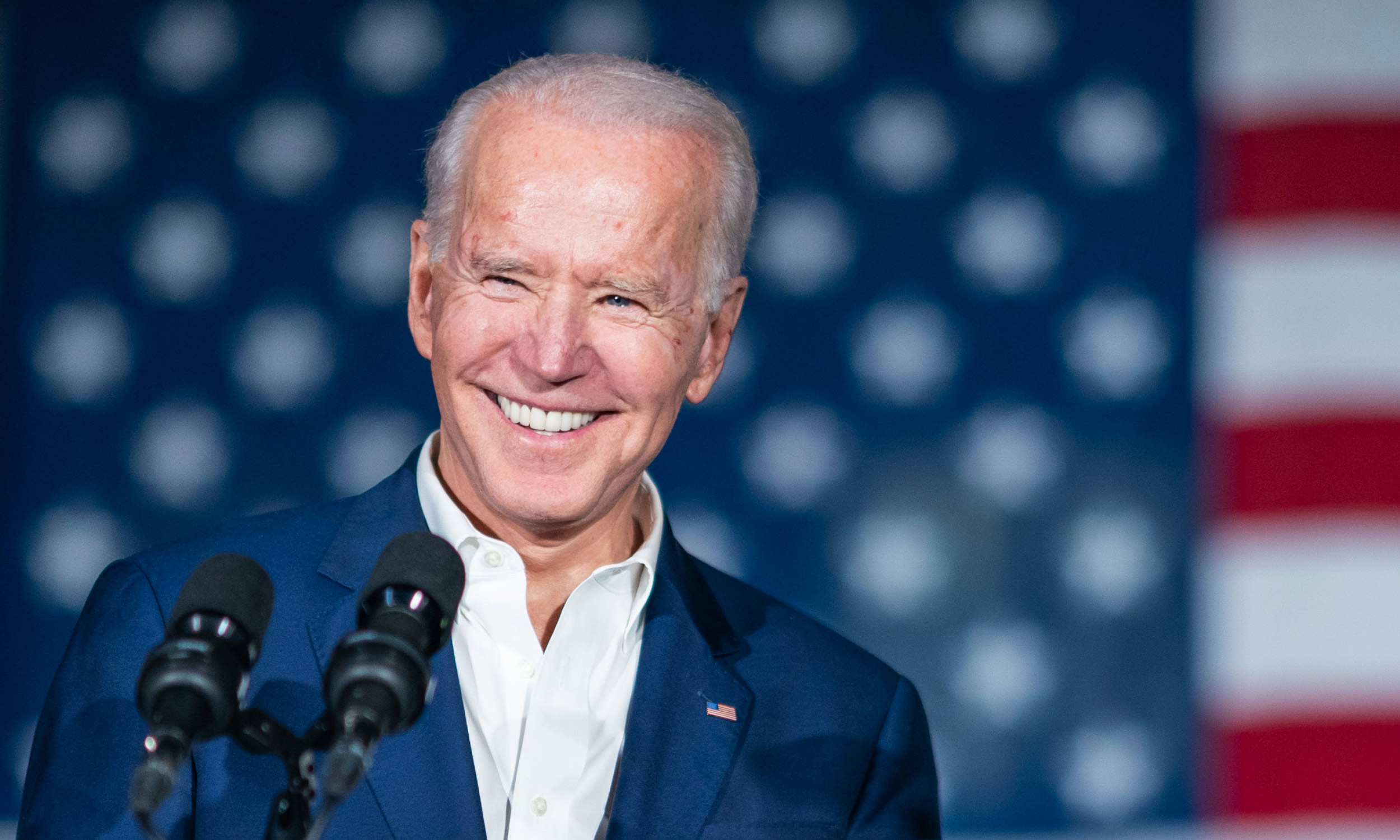US stimulus package inspires Talking Points
Posted on 07 Apr 2021 Categories: Blog, Climate crisis, Coronavirus, Talking Points
by Rethinking Poverty
January and February’s Talking Points focused on poverty and equality and the climate crisis, looking for glimmers of hope and finding not many – at least not in the UK at government level. March opened with environmental groups expressing scepticism about Chancellor Rishi Sunak’s ‘green growth’ budget measures and the Institute for Fiscal Studies warning that the chancellor ‘isn’t really levelling with people’ over budget cuts that will pull more people into poverty. Sarah Everard’s tragic death has led to much discussion – first about violence against women and girls, but also more widely about issues such as the relative poverty of women, the gender pay gap and the way women have been disproportionately affected by the pandemic. Rather than focusing on this rather bleak picture in the UK, March’s Talking Points looks for inspiration to what is happening in the US with their new stimulus package, and to examples of successful and ambitious local action both in the UK and in other countries.
The US stimulus package
In the US, the $1.9 trillion COVID-19 Stimulus Package was signed into law by Joe Biden on 11 March. It will provide direct payments of up to $1,400 to most Americans; extend federal unemployment benefits; increase – and expand eligibility for – child tax credit; rush money to state, local and tribal governments; and allot significant funding to vaccine distribution and testing. Despite deep political polarisation and staunch Republican opposition, the legislation has broad public appeal. A poll by Monmouth University found that 62 per cent of Americans approve of the stimulus package.

Advocates say it will cut the number of Americans living in poverty by a third and reduce child poverty by nearly half. This marks an end to four decades of Reaganism, says David Smith, writing in the Guardian. ‘This bill attacks inequality and poverty in ways we haven’t seen in a generation,’ says Democratic congressman Jim McGovern. ‘Joe Biden is giving left parties the world over a masterclass in how to use power,’ writes Jonathan Freedland. He quotes conservative columnist David Brooks calling Biden’s Covid relief law ‘one of the most important pieces of legislation of our lifetimes’.
Interestingly, New York Times columnist Nicholas Kristoff, answering the question ‘What Can Biden’s Plan Do for Poverty?’, says ‘Look to Bangladesh’, whose ‘surprising success offers lessons about investing in the most marginalized’.
Bangladesh’s secret, says Kristoff, was education and girls. In the early 1980s, fewer than one-third of Bangladeshis completed elementary school. Girls were rarely educated and contributed negligibly to the economy. Today, 98 per cent of children complete elementary school, with more girls in high school than boys. ‘As Bangladesh educated and empowered its girls, those educated women became pillars of Bangladesh’s economy’, which soared by 7 to 8 per cent per year, even faster than China’s, while life expectancy is now 72 years, ‘longer than in quite a few places in the United States’.
Changes to child tax credit
Back to the US … The changes to child tax credit represent ‘a longtime progressive priority ’, writes Lauren Gambino. Under the bill, the tax credit would jump to $3,600 for children up to age 5 and $3,000 for children aged between 6 and 17. More than 90 per cent of all American children – almost 70 million – will be included in the scheme, which will have the potential to halve child poverty.
At present, one in three children in the US – 23 million – are in families that earn too little to be fully eligible for benefits. One in five Black children are currently locked into poverty; they are projected to see a 55 per cent drop in poverty rates, while 53 per cent of Hispanic children are expected to be lifted out of poverty.
The COVID-19 Stimulus Package marks a retreat from the ‘devastating shift away from cash aid to work-related tax credits’ that took place in 1996. Joe Biden, then a US senator from Delaware, supporting the reform, tried to justify the tough work requirements by arguing that ‘too many welfare recipients spend far too long on welfare and do far too little in exchange for their benefits’.
So what changed? The pandemic, says congresswoman Rosa DeLauro, ‘shone a bright light on the health and economic inequities and the racial disparities in our system’. ‘The undeserving-deserving divide breaks down when people who do deserve things don’t get what society has promised them,’ says sociologist Kathryn Edin. The challenge now is to make this victory last. Under the stimulus package, the new allowances will be in place for one year only, but the hope is that they will prove so popular that Congress will be obliged to make them permanent.
Of course it can be pointed out that the UK already pays out child benefit to almost all children, though at a much more modest level. But what Biden’s stimulus package demonstrates above all is that it is possible for governments to take truly transformative action.
The infrastructure bill
In addition to his stimulus package, Joe Biden’s new infrastructure bill was launched on 31 March. With it, says Observer columnist Will Hutton, ‘the democratic left rediscovers its soul’. The plan is to spend $2 trillion over eight years, much of it on mitigating the climate crisis. It also includes ‘the care economy’ – care now being defined as part of the country’s infrastructure – and a tranche of projects and investments the administration says will advance racial equity in employment, housing, transportation, healthcare and education. All this will be paid for by tax rises, with corporation tax set to rise progressively to 28 per cent and a minimum tax levied on all worldwide company profits.
‘The size of it is disappointing. It’s not enough.’ This was Alexandria Ocasio-Cortez’s initial response to proposed climate-focused infrastructure package. She nevertheless admitted to being pleased that ‘the White House plan’ did end up including priorities such as strengthening unions and a focus on communities hit hardest by climate change. ‘I do believe that we have been able to influence a lot of thinking on climate and infrastructure,’ she said. ‘As much as I think some parts of the party try to avoid saying “Green New Deal” … ultimately, the framework I think has been adopted.’

What about Europe?
The French climate bill is set for a rocky ride after the citizens’ assembly slammed its lack of ambition, reports Climate Change News. On 31 March, members of parliament submitted more than 4,000 amendments to the government’s proposed climate and resilience law.
But more ambition was evident in the European parliament, where MEPs voted by a large majority to push forward with legislation to hold firms to account for human rights abuses and environmental damage such as deforestation and pollution, requiring companies to conduct due diligence throughout their supply chain. The European commission is expected to table a law in June to apply to all businesses operating within the EU, including those based outside the EU, such as UK companies.
Local climate initiatives in the UK
Throughout the UK, businesses, cities, communities and campaigners are taking the initiative to address climate change ahead of government action. The industry is leading the way on eco-homes despite the lack of government regulation. It has been calculated there are as many as 30,000 low-carbon homes in the pipeline. After scrapping Labour’s zero-carbon homes target in 2015, the Conservative government has finally developed a future homes standard, which will mandate all new homes to be ‘zero-carbon-ready’ – but not until 2025 at the earliest.
In Edinburgh, cars are set to be banned from George Street to open up the space for pedestrians, bikes and outdoor seating areas. The historic street will be given a ‘European boulevard feel’. The plans form part of the city council’s 10-year transformation project, which will see the city centre become largely car-free by 2030.
At the community level, hundreds of grassroots schemes across the UK are tackling the climate crisis. Luke Murphy, the lead author of the IPPR report, said: ‘Under the radar there are already flourishing and transformative community initiatives to pool resources and create shared low-carbon energy, housing and natural assets … These groups have shown that they can increase community wealth and create thriving places while addressing the climate crisis.’ Local schemes include social housing schemes, reclaiming derelict land, repair cafés and renewable energy projects. IPPR is calling for new legislation to make it easier for communities to set up, run, own and reap the benefits of these new ‘climate commons’, which should be supported through a new ‘thriving places’ fund.

Traditionally, one source of support for local initiatives has been local councils, but with swingeing cuts on the cards as councils in England face a funding crisis, support from this quarter seems unlikely. According to the National Audit Office, the vast majority of English councils (94 per cent) expect to cut spending next year to meet legal duties to balance their budgets. ‘Prepare for brutal cuts,’ warns the Guardian’s Polly Toynbee. An IFS report has uncovered huge hidden cuts ‘buried in the budget, unmentioned in the chancellor’s speech … As in the last period of austerity, the big axe is being devolved to local government.’
Environmental protests – joining up the dots
Across the UK, environmental protest is surging. So why don’t we hear about it? asks Ros Coward. ‘How many local environment campaigns does it take for the issues they raise to be recognised as part of a national problem?’ In just two weeks, more than 280 different groups across the UK have registered on a new National Grassroots Campaigns Map.’ Co-founder Rosie Pearson is astonished: ‘When we set it up, it was really just to see what’s out there. But we quickly realised there’s a real hunger for sharing information, resources and support.’
These are far from localised disputes, says Coward. They are fighting the same battles: ‘against huge unsustainable housing developments engulfing small towns; against the loss of greenbelt or protected wildlife areas; and against hypocritical councils who declare a climate emergency in one breath and order the destruction of carbon sequestering trees or marshland in another.’ Coward herself has just been involved in one such struggle: a protest to Save York Gardens, which through February tried to prevent the felling of a magnificent, century-old black poplar tree on an estate in Wandsworth, south London.

While it will strengthen local campaigns to come together, it is clearly in the government’s interests that they should stay under the radar. ‘It’s not surprising that politicians downplay and “localise” such protests as lacking national significance,’ writes Coward, ‘given the government’s “build, build, build” agenda … The new campaigns map has revealed people who realise they are part of a wider movement, whether HS2 protesters, tree defenders, or campaigners for local nature reserves.’
Finally, back to the US …
… where Californians on Universal Basic Income (UBI) paid off debt and got full-time jobs and had ‘statistically significant improvements’ in emotional health. The programme, financed by private donations, gave $500 per month for two years to 125 Stockton residents who earned less than the city’s median household income of $46,033, with no rules on how to spend it. Critics of UBI, also known as Basic Income, argue that free money would eliminate the incentive to work. When the programme started in February 2019, 28 per cent of the 125 people had full-time jobs. One year later, the figure was 40 per cent. The researchers said that the extra $500 per month was enough for people with part-time jobs to take time off to interview for full-time jobs that offered better pay.
Another thing cited by opponents of UBI is the high cost. New modelling in the UK has shown that it is feasible to give a secure monthly income of £260 to all individual adults of working age and £520 to all couples at a net cost of £1.8 billion.
Want to keep up-to-date with more articles like this? Sign up to our newsletter.
Posted on 07 Apr 2021 Categories: Blog, Climate crisis, Coronavirus, Talking Points
